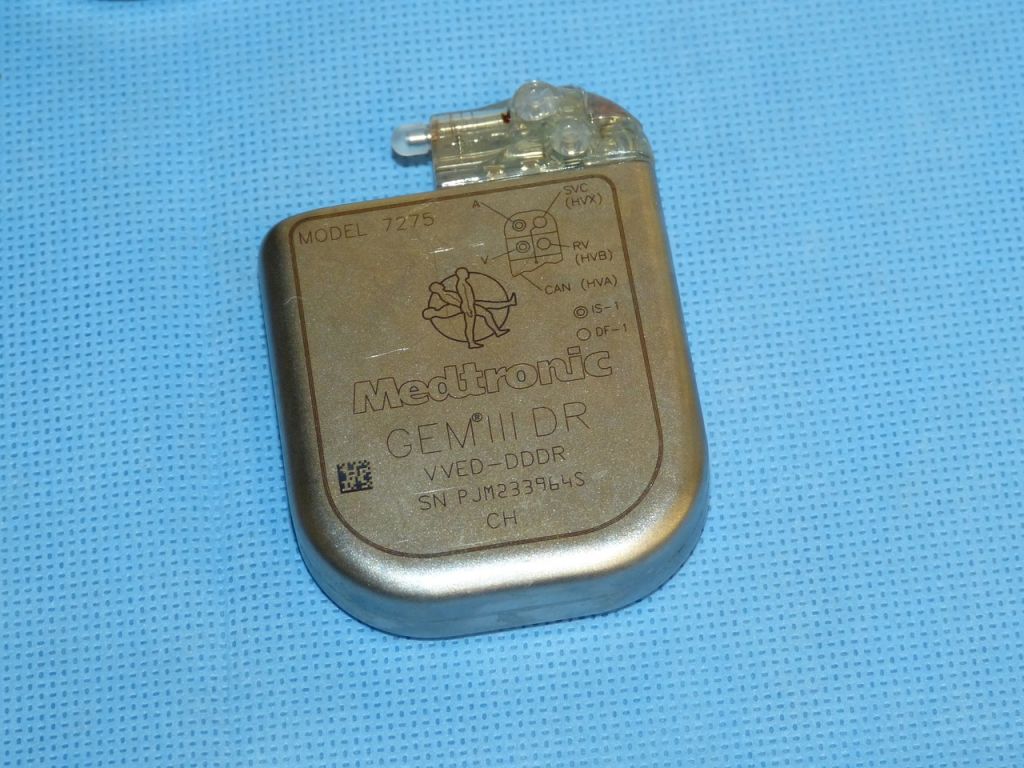
The Risks of Implantable Technology
The line that separates humans from the technologies they create is getting thinner by the day. Nowhere is this more apparent than with implantable technology. Where technological items are put inside your very flesh for one reason or another.
The fusion of humans and machines has the potential to brings the inherent weaknesses of digital electronics uncomfortably close to home. If implantable technology is news to you, let's take a minute to define what sort of technology I'm talking about here.
Tech That Goes Inside the Body
Implantable devices have a pretty short history. In 1958 the first implant of a pacemaker into a human being was performed in Sweden. Today millions of people have tiny pacemakers implanted that ensure their hearts beat as intended. Right now there are even smaller intracardial pacemakers undergoing testing in humans. These are inserted through a catheter and go inside the heart itself.
There are many other implantable devices in use right now. Some people have cochlear implants to help them hear and there are even brain implants that help manage conditions such as epilepsy. New implantable devices are on the horizon as well, so the privacy and security implications need serious thought.
Hackers Get Into Medical Devices
While it's pretty trivial to interfere with an implantable device by, for example, disrupting it with an electromagnetic pulse, that's not the sort of problem that's facing us. Just as with all other electronic devices, medical implants are getting smarter and thanks to technologies like Bluetooth and short-range wireless tech, they are talkative too. It's pretty useful to give a pacemaker a memory and the ability to provide detailed records of heart behavior. Perhaps you want the device to trigger an emergency alert if a heart attack happens.
The same goes for a device like an automated insulin pump. There are plenty of reasons to make them smart and connected. You can probably see where this is going.
It didn't take long for hackers to demonstrate that you could do some pretty gnarly things to these smart implants. Last year hackers showed off how they could put malware onto a modern pacemaker. Letting the hacker prevent or cause electric shocks from the device. Hackers have also figured out how to compromise insulin pumps.
This is more than just an impressive feat of hacking. Devices like these are literally keeping people alive, so any attack that can compromise them is of grave concern. A problem the future might only make worse.
The Future of Implantable Technology
While the variety of implantable devices is still relatively low, that won't be the case for long. We are entering a future where many organs could be replaced by an artificial device with digital intelligence built-in. From artificial hearts to artificial retinas, there may not be a body part that can't be replaced by artificial equivalent.
Now imagine a world where your new retinas, or prosthetic limb or robotic kidneys could be disrupted to sabotaged by a malicious hacker. Alternatively, these devices could be compromised to spy on you. To record your vital signs or, depending on the type of implant, even footage or sound.
Then we have to think about brain-computer interfaces. With companies like Neuralink work hard to eventually establish a direct two-way link between computer systems and our brains, this century might introduce the very real possibility that exobrain technologies could fall victim to malware.
Did Cyberpunk Predict the Future?
Science-fiction has had a good track record of both predicting and inspiring the future. We only have to look at popular shows such as Star Trek to see tech ideas that were fantasy eventually become commonplace. The Cyberpunk genre of fiction paints a type of dystopia where humans and machines live symbiotic lives, but also chaotic ones as computer criminals of various stripes can wreak havoc on society on a shockingly intimate level.
So are we heading into the sort of dark timeline Cyberpunk outlines? Obviously no one can know, but as human beings become more integrated with digital technologies, the types of security measures needed to prevent abuse of implanted technology will have to be airtight.
No Such Thing As Safe
This is a problem because there is no such thing as a system that can't be compromised. So it's not about pursuing an impossible, perfect hack-proof system. It's about mitigating risks. The average person who needs a pacemaker will probably never be the target of an attack. The president of a country, one the other hand, will need a specially secured unit. Just as presidential smartphones have to be secured. Military medical implants will need to have military-grade hardening against attacks as well.
In the end, these implants may need proprietary, highly encrypted hardware and protocols that aren't based on major standards such as Bluetooth. Anything to make the development of exploits so difficult that there's little incentive to do it.
As a society, we'll also have to kick hard against the government and corporations having access to back doors in these implants. It's one thing for your phone to track or spy on you. You can smash it and throw it away. You can't do the same with an artificial device that's literally keeping you alive!
Alternative Therapies to Implantable Technology
The good news is that, at least on the medical side of things, there are alternative technologies to address the diseases and injuries these implants are geared to solve.
Gene therapies are restoring sight, stem cell research and regenerative medicine are also set to help replace or regrow damaged body parts. We even have medical 3D printers that are advancing at an impressive rate.
So, in the end, the true danger lies with elective implants. The implantable version of today's smartphone. You'll have to ask yourself whether the benefits of having smart technologies within your body is worth the small chance that you are literally leaving a path into yourself for attackers. A question we'll all have to answer eventually.
Would you get a smart implant? Let us know down below in the comments. Lastly, we’d like to ask you to share this article online. And don’t forget that you can follow TechNadu on Facebook and Twitter. Thanks!















